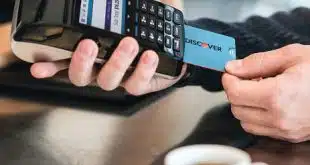The United States may have been late to the EMV party, but U.S. credit and debit card issuers pushing out EMV chip cards have helped make the country the number-one market for EMV plastic, according to the latest figures from Visa Inc.
As of June 30, Visa chip cards totaled 326.8 million, more than Brazil, with 141.3 million chip cards, and the United Kingdom, 118.3 million, combined. Brazil had been the top Visa chip market, followed by the U.K.
Chip debit cards continue to outnumber their credit brethren, with 165.3 million debit cards in issue compared with 161.5 million credit cards. In April the totals were 145.7 million debit cards and 137.2 million credit cards.
“We do anticipate that debit will continue to accelerate,” Stephanie Ericksen, Visa vice president of risk product, tells Digital Transactions News. “As debit started to catch up with the common AID and the other networks participating, we started to see more debit cards issued.” The common AID is a technology used to route debit transactions made with EMV cards in accordance with the Durbin Amendment’s routing rule.
Merchants, too, are adopting the payment technology, she says, adding, “We are seeing about 100,000 new locations a month.” Visa’s latest tally is 1.3 million EMV-enabled merchants—meaning they have the equipment and software to actively accept chip cards. That’s up from 1.1 million in April, and double the 2015 year-end total of 766,000 locations.
Ericksen expects the number of EMV-enabled merchant locations, not just EMV-capable—defined as having the equipment but not yet able to accept chip transactions—to rise more quickly following the changes Visa and other card brands made to the certification process. That includes a reduction in testing requirements and an easing of the EMV chargeback policy.
Ericksen says Visa also is working on an information-sharing platform for acquirers that will enable them to know which systems other acquirers have certified. “We had many acquirers ask if there was a way to recognize each other’s testing and certification,” she says. The platform should provide a measure of confidence that an EMV product has at least met the essential EMV standards. The acquirers still will have to certify them for their unique systems, but they would at least know the core EMV aspect is already tested and certified, Ericksen says.
Such moves could go a long way, says Alex Johnson, director of the Credit Advisory Service at Mercator Advisory Group Inc., a Maynard, Mass.-based payments consultancy. For 2016, Mercator projects that 41% of merchant locations will be EMV-enabled, down from an earlier projection of 44% to 45%. That’s because of the certification bottleneck, Johnson says. Mercator just released a report—“EMV in 2016: Breaking Through the Bottleneck”—on the subject.
“It’s especially impacting the middle market of merchants, which have fairly complex [POS] systems,” Johnson tells Digital Transactions News. “The reason we didn’t lower our projection even further is because of the changes made recently by the networks. We anticipate that will start to thread out the bottleneck over the next six months.”
Visa, of course, has similar expectations. “What we’re really trying to help and address is the semi-integrated and integrated solutions,” Ericksen says. Merchants with these systems, which often involve getting specialized point-of-sale software to communicate securely with a payment acceptance device, typically have multiple certifications to obtain but lack the resources of larger merchants to easily do so.
This configuration also suffers from a lack of uniformity, Johnson says, which “tends to complicate this [certification issue] much more than you think.”
Other Visa chip card data indicates that counterfeit card fraud at chip-enabled merchants decreased 35% in March, compared with the rate in March 2015. Visa also says that 25% of its dollar payment volume was made with a chip card on a chip terminal in June. There were 483 million chip transactions in June, up from 345 million in April, and more than double the 231 million total at the end of December.





